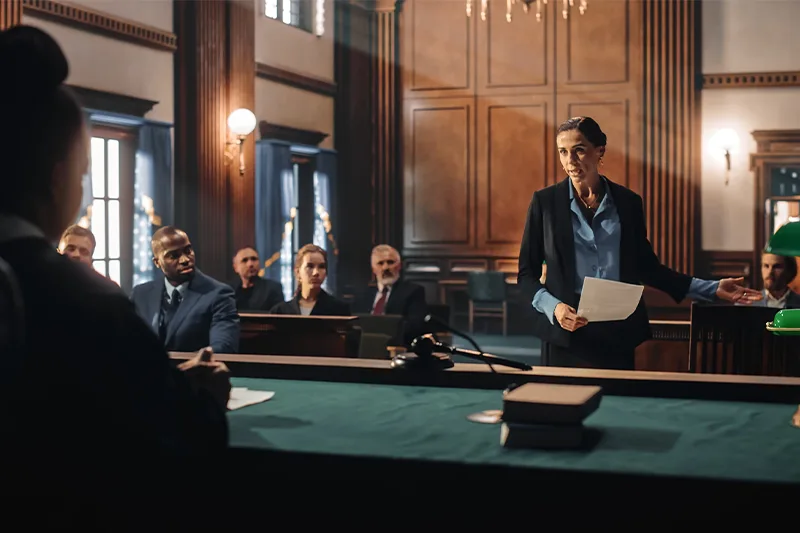When defending yourself against a criminal case, there are a lot of things on your mind. From court proceedings to seeking legal counsel, it can feel overwhelming. One of the questions that you have in mind may be, “Can an attorney contact opposing client?”
This concern is valid as both parties involved in a legal dispute have rights that must be respected. At Holt Law, we often get questions from clients about this matter and in this article, we will discuss the legality and ethical considerations surrounding this complex topic.
Is it Possible for My Attorney to Contact the Opposing Client?
According to the American Bar Association (ABA), lawyers are required to follow a set of ethical rules known as the Rules of Professional Conduct (RPC). These rules govern the behavior and actions of attorneys and protect clients’ interests.
One of the rules that lawyers must adhere to is Rule 4.2: Communication with Persons Represented by Counsel. This rule states that a lawyer shall not communicate about the subject of the representation with a person, organization or entity that has legal representation in respect to such a matter unless the lawyer has prior consent from the represented party’s attorney or is authorized by law to do so.
Essentially, this means that an attorney cannot directly communicate with the opposing client without their own lawyer’s consent or a court order allowing them to do so. This rule is in place to ensure fairness and prevent any conflicts of interest between attorneys.

Exceptions to the Rule: When Can an Attorney Contact Opposing Client?
As mentioned, there are some exceptions to the rule that allow for direct communication between attorneys and opposing clients. Let’s take a look at some of the situations where this may occur:
When the Represented Party Gives Express Consent
Sometimes, the opposing client may give express consent to their attorney for direct communication with your attorney. This usually happens in situations where both parties are trying to reach a settlement or agreement outside of court. In these cases, it is important to ensure that the communication is clearly documented and that all parties involved understand the terms of the communication.
When the Communication is Authorized by Law
In certain legal proceedings, it may be necessary for attorneys to directly communicate with opposing clients in order to negotiate a settlement or come to an agreement on specific legal matters. This type of communication is typically authorized by law and must be conducted in a professional and respectful manner.
When There is an Emergency Situation
In cases where there is a potential threat to someone’s health or safety, attorneys may be allowed to directly communicate with opposing clients in order to take the necessary action. However, this exception should only be used in urgent situations, and all communication must still adhere to professional standards.

The Risks of Direct Communication
While there are instances where direct communication is allowed, it’s essential to consider the potential drawbacks. Contacting the opposing client without a valid reason may lead to complications and hinder the legal process.
Here are some reasons why it might not be the best course of action:
Ethical Concerns
Direct communication may be perceived as unethical, potentially harming your case in the eyes of the court. It’s crucial to prioritize legal and ethical considerations over immediate convenience.
Legal Repercussions
Violating the rules governing attorney conduct can lead to legal consequences, jeopardizing the overall outcome of your case. It’s essential to follow established procedures to maintain the integrity of the legal process.
Misinterpretation
Direct communication may lead to misunderstandings or misinterpretations, complicating the legal proceedings. It’s often more effective to let legal representatives handle communication to ensure clarity and precision.

Trust an Experienced Criminal Defense Lawyer with Your Case
When facing legal challenges, the last thing you want is added stress or complications. While there may be instances where direct communication between attorneys and opposing clients is allowed, you must make sure that it will be done only when necessary and in the best interest of your case.
If you’re seeking legal representation, consider reaching out to Holt Law for expert guidance. Our experienced team is well-versed in criminal defense, and we are dedicated to providing effective and ethical representation for our clients.

